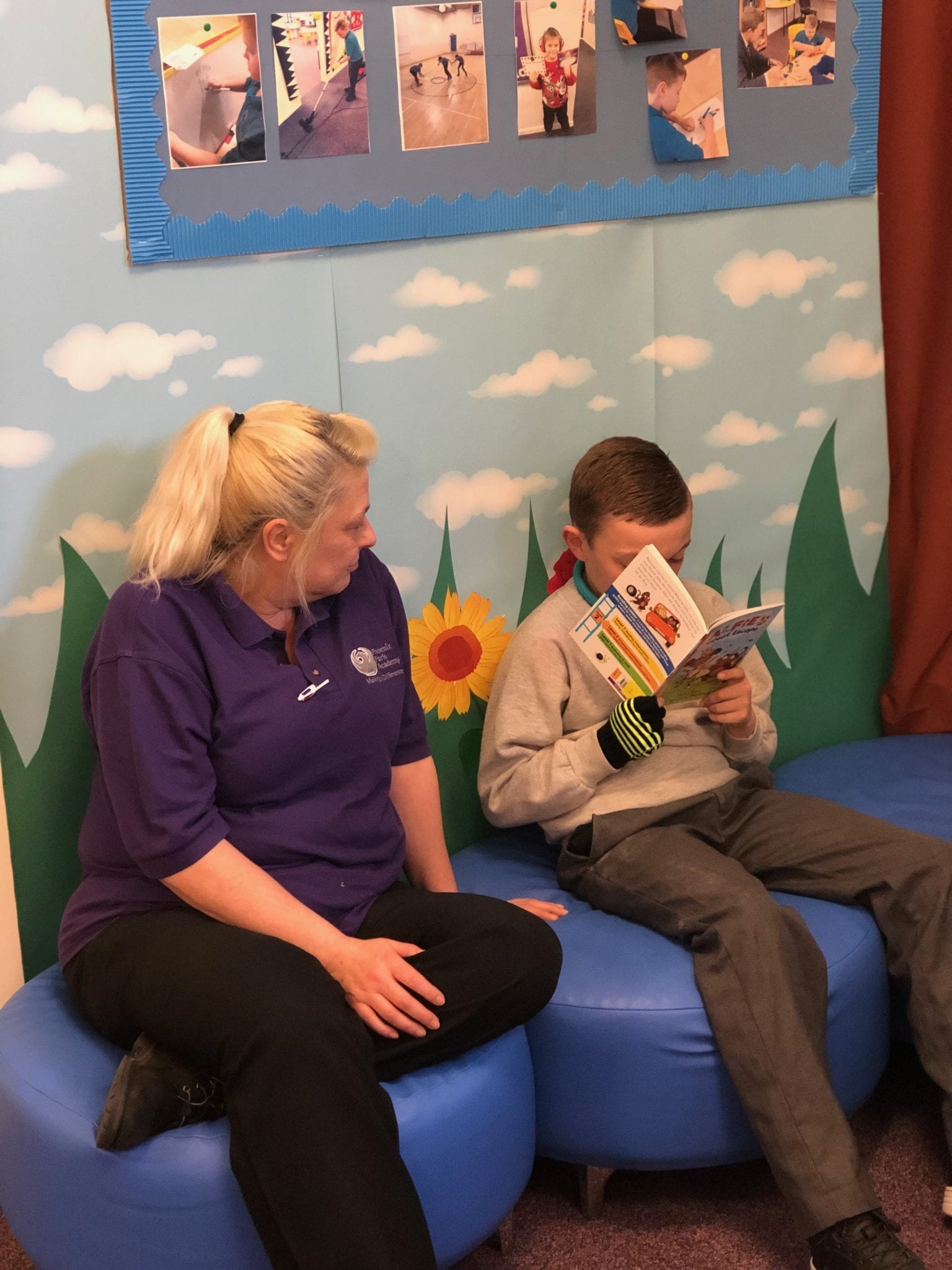I was invited recently by one of our Strategy Groups to set out my perspective on Ofsted in order to support our ongoing internal dialogue around curriculum design, priorities and aspirations for our young people and communities.
May I put on record first my thanks to the Strategy Group for the invitation. In putting pen to paper, I write as (a.) Chief Executive of a large Multi-Academy Trust (b.) an education System Leader and (c.) an experienced senior professional who has been involved in many Ofsted inspections and who has seen Ofsted in many guises in many, many schools over many years.
I have ‘direct’ experiences of at least ten Ofsted inspections going back to 1997, nine of them as a Senior Leader in schools. I can remember at least three HMI Subject Inspections within this timeframe also. During my tenure as CEO of Wellspring, we have had thirteen Ofsted inspections, thus far, and three Monitoring Visits to schools in Special Measures. I am delighted to say that the outcome of approaching thirty Ofsted inspections that I have been involved with in whichever capacity have been positive ones. This is either evidence of a charmed life or that perhaps I have managed to get something right along the way.
In addition to “being at the receiving end” of inspections, I have also participated “on the other side” as a member of an inspection team. I trained as an Inspector in 2012 and inspected in late 2012-2013. Much of what I learned during training and inspecting was what I already knew: Ofsted inspectors are a very diverse group with different attitudes, worldviews, experience, expertise, dispositions and grasp of the framework.
Experience has taught me that:
- Every inspection is different, irrespective of a common framework and a (theoretically) common process
- The influence of the Lead Inspector is pivotal to the conduct of the inspection, as is the influence of HMI, if an inspection is chosen for QA
- Ofsted inspectors are human and make many mistakes, just like anybody else
- There is a great deal of pressure on both sides of the inspection
- Everybody deals with pressure differently
- Everybody has their own preferred way of working and of receiving information
- Any two inspectors can see exactly the same thing very differently (one quick example of this from my Ofsted training: a short video of a teaching sequence elicited judgements from Outstanding all the way through to Inadequate from that group of soon-to-be Inspectors).
An Ofsted inspection is a big thing for schools, there is no getting away from this. An inspection is a matter of public record. People perceive there to be a lot riding on the outcome of an Ofsted inspection. Inspection outcomes can be career-defining. The process itself is a very infrequent and very intense one which heightens the stress sensation. Leaders going through a second and third inspection usually feel more adept at “managing” an inspection than they did first time around.
To summarise, thus far:
- Inspection is an imprecise science
- There is power inequality inherent within it.
Ofsted may argue that these imprecisions even themselves out over time and that judgements are largely accurate and that power inequality is the same for everybody and is therefore irrelevant as a variable.
In very specific cases, leaders may argue that these imprecisions lead to an inaccurate overall judgement of their school and that this is unfair.
Inevitably, there will always be circumstances where “cusp” judgements are made one way or the other. “Best fit” is a factor in all judgements. Professional (and / or personal) opinion is a factor in all judgements.
I have yet to come across a school judged Inadequate that was not, despite the many protestations to the contrary that I have heard. I’ve known quite a few schools judged Requires Improvement that did not deserve it – more deserved to be judged less favourably. One or two, on another day and with another Lead Inspector, would have been judged Good. I’ve known quite a few schools judged Good that were outstanding, every step of the way.
At scale, human behaviour demonstrates patterns. The path of least resistance is the one most worn. There is a natural tendency to cluster towards the middle. Where possible, people avoid awkwardness. Inspectors have an easier ride when judging a school to be good. Leaders feel less awkward when they are self-deprecating.
Pressure, or perceived pressure, influences behaviour. Most of us have heard of the Headteacher who prefaces an initiative or development with “Ofsted will expect..” or “Ofsted wants to see..” Ofsted, of course, say they don’t expect and don’t ‘want to see.’ Ofsted are correct. Ofsted cannot, however, legislate for how the pressure that leader perceives affects their thinking, behaviour or communications. The output: staff feel Ofsted ‘pressure’ from a proxy-Ofsted source that has nothing directly to do with Ofsted itself. ‘School Improvement’ has often taken the same proxy-Ofsted form thus staff in school perceive ‘Ofsted, Ofsted, Ofsted’ when Ofsted in reality is a long way away.
My philosophy as a School Leader in the times that I have given any thought to Ofsted at all was ‘Do what you believe to be the right thing and Ofsted will take care of itself.’ That’s what I did. That’s what it did. That’s not to say I’ve been satisfied with all of the judgements. Far from it. I would prefer, however, to be driven by moral purpose and conviction as an educator… and fight my corner for those principles… than to allow my decision-making to be driven from somewhere else. For me, it is a leader with little authority who says “Ofsted will expect…” It is an authoritative leader who says “I believe…” For me, some of the ethical concerns that we see emerging in the press around (for instance), off-rolling, students not in education and mid-year changes to curriculum all have the pressure or perceived pressure of Ofsted and / or Ofsted by proxy associated with them. Otherwise… why would such practices even exist? They don’t in many other countries. And it may be interesting to note here that many other countries do not have an equivalent of Ofsted.
Ownership of decision-making is critical. As CEO of a Multi-Academy Trust I do not expect our leader’s decision-making to be on the basis of anything other than their Moral Purpose, professional judgement and conviction.
There is, of course, the need for us to scrutinise what we are doing. Effective scrutiny is important. Ofsted has its’ role to play in that scrutiny.
Ofsted does not, however, care about whether the toilets smell, whether the boiler has been serviced, whether the meals are nice, whether the budget balances, or whether playtimes and lunchtimes are joyous. I do.
Wellsprings Self-Evaluation Framework integrates Academy effectiveness in far greater detail than any Ofsted inspection framework ever has. Crucially (for me) we pay close attention to matters that include Health & Safety compliance, effective financial management and effective HR management. Ofsted can award a Good or Outstanding judgement to a school that is not fire safe, has serious financial problems and high numbers of students leaving at times other than the end of their school careers. Our Assessment Framework cannot.
Our Assurance methodology is based on trust, honesty, openness, insight and understanding. To me, these are the only conditions in which a shared judgement of effectiveness can be achieved.
Ofsted is part of our reality as education professionals. An inspection comes around rarely. It is our duty to do the best for our young people according to our beliefs, principles and values. We have a detailed and very thorough Assessment Framework that provides us with ongoing assurance around our effectiveness. We have a College of peers who power one another’s School Improvement agendas through dialogue, sharing, support and guidance. We belong to a network that believes in System Improvement, a network that is focussed on sustainability and resilience over time: the long game. Our main thing is to make our main thing the main thing: our kids, their interests, their futures. I expect us all to give Ofsted only the priority it warrants in our thinking and decision-making.
An Ofsted inspection should always represent an opportunity for celebration for us… with staff, stakeholders and our communities. We welcome scrutiny and we take every opportunity available to celebrate our successes together.
Reminders for Leaders:
- Build professional networks.
- Be alert to Ofsted-by-proxy.
- Do what you believe to be right. Always.
- Be rigorous. Invite scrutiny.
- Take every opportunity to celebrate.











